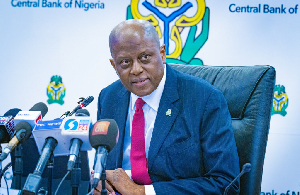Former Head Coach of the Super Falcons of Nigeria, Randy Marlon Waldrum, has revealed that the NFF were poor in handling finances during his four-year tenure.
The 68-year-old took charge of the Nigerian senior women's team in October 2020 after initially declining to take on the role three years prior.
In his time as the Super Falcons' head coach, Waldrum helped Nigeria qualify for the 2023 FIFA Women's World Cup and for the 2024 Olympic Tournament in Paris last year. He stepped down to look after his wife, Dianna, who had an open heart surgery last year.
During Waldrum's tenure, Nigeria experienced a significant influx of foreign-born talent returning home to represent the country, largely due to his connections in the United States, as he worked simultaneously as the coach of the University of Pittsburgh Panthers women's football team.
Randy Waldrum on his Super Falcons Tenure, NFF Issues, Possibility of Return, WAFCON 2024 & More
— EaglesTracker (@ETMediaNG) June 25, 2025
Watch the full exclusive interview now on the EaglesTracker YouTube channel. pic.twitter.com/VkqhCvmQ1z
In an interview with Eagles tracker, the former Trinidad and Tobago coach revealed the long-term plans he had in the works for the Super Falcons.
“There's so much potential to do great things on both the men and women's side in Nigeria, and my hope when I took the job was that I could bring some new ideas and thought process, especially with our women being the best in the World here in the United States.
“I thought I could bring some of the organizational ideas, the long-term planning. I had developed a ten-year plan for Nigeria, for youth football and how it would translate into winning a World Cup within the next ten years and I hoped I could influence it that way because I knew they had great players.
“That's why I took on the project, but I enjoyed my four years there. I also had some difficult time there, but we had a lot of great success, but I loved my time there.”
While many raised eyebrows about the American coach working multiple jobs whilst he was in charge of the Super Falcons, he admitted his scepticism about how the NFF had handled the salaries of previous coaches caused him to seek more security.
“I'd also read in the media, all of the stories of the men's team and their coaches not getting paid or not getting paid on time, and it's a little different in the US than it is in Nigeria.
“Here, every month, you have a house payment, a car payment, and you have bills to pay, and if you don't pay those bills, you lose your home after a few months, so, I was a little reluctant being worried that I would be paid on time.
“I also had to consider medical insurance and other things, and in all fairness, without a disrespect to the federation (NFF), it was the best decision, as there were times that I wasn't paid for fourteen months, and If I wasn't working at Pittsburgh, I would've lost my home here, so I needed the security.
“I was willing to step down if I got there and everything was the way it should've worked with the payments, but it wasn't the same.
“It probably worked for the Federation as well because that was when COVID hit and from a financial view, they didn't have to pay me a full-time wage which is what they'd normally do if they had a coach on ground.
“I never downplayed Nigeria. They were never second to Pittsburgh in the four years that I was there. I fully committed my time and energy to helping the team qualify for the World Cup and the Olympics,” Coach Waldrum continued.
While he's no longer Nigeria's coach, Randy Waldrum remains a fan, and he sent out a strong note of warning to the NFF about their lack of investment in football, stating that it'll be tougher to compete without these things in place.
“It's easier to dispose coaches if they don't win, but with what's going on in Africa, it's going to be difficult to continue winning if the Federation doesn't start to support things better.
“If you go to Morocco and look at their National training centre, it's one of the best in the World, and I've been everywhere. Compared to what the United States have, what Morocco has is immaculate, pristine, and it's everything you can think of.
“They've invested in their football and you saw it in their men's team at the last World Cup, and even with how their Women's team have grown in the last five years. Same with South Africa and Ivory Coast.
“Nigeria almost feel like it's a birthright to win the WAFCON, to win it because they've done so many times, but it won't continue that way, and a day will come where they won't qualify for the World Cup if they're not careful.
“Other countries are beginning to invest and put more into football and eventually, it will catch up with Nigeria. That will be my concern moving forward for them. Too many people think it will happen just because you're Nigeria, but it doesn't happen that way,” the American coach concluded.
Now under Justin Madugu, the Super Falcons are hungry to win again. Their WAFCON journey begins with a fascinating clash against Tunisia on the 6th of July before they take on Botswana in Casablanca four days later. Their final group game will be on the 13th of July against Algeria.













